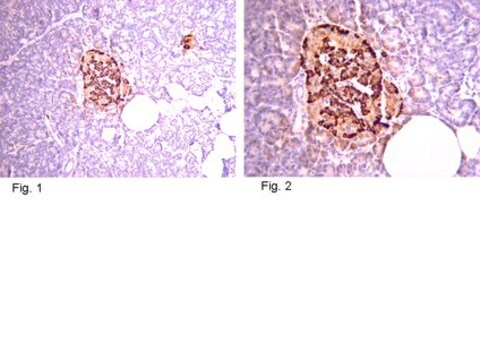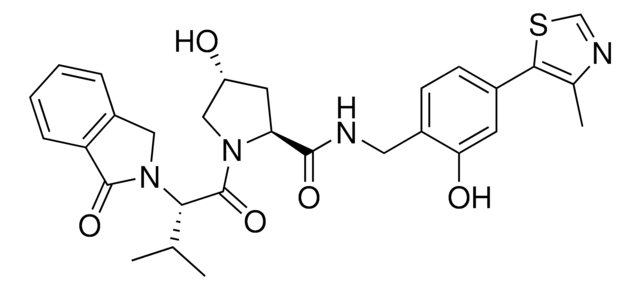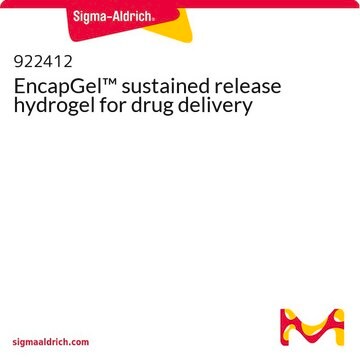926248
Redox Responsive Poly(ethylene glycol)-block-poly(lactide-alt-glycolide)
PEG average Mn 5000, PLGA Mn 15000
Synonym(s):
Drug release, PEG-PLGA with disulfide linkage, PEG-SS-PLGA, Stimuli-responsive
About This Item
Recommended Products
form
powder, chunks or granules
Quality Level
mol wt
PEG average Mn 5000
PLGA Mn 15000
storage temp.
2-8°C
SMILES string
O=C(C(C)OC(CO[H])=O)OCCSSCCOC(OCCOCCOC)=O
InChI
1S/C15H26O10S2/c1-12(25-13(17)11-16)14(18)22-7-9-26-27-10-8-24-15(19)23-6-5-21-4-3-20-2/h12,16H,3-11H2,1-2H3
Related Categories
Application
Different from common Poly(lactide-co-glycolide) (PLGA) polymer, the lactic and glycolic units in Poly(lactide-alt-glycolide) block alternate in sequence in the polymer chain, and the molar ratio of lactic to glycolic units in the polymer is exactly 1:1.
Poly(lactide-alt-glycolide) exhibits excellent solubility in common organic solvents, such as acetonitrile, acetone, dioxane, DCM, and THF, providing great convenience for drug delivery researches and applications.
Storage Class Code
11 - Combustible Solids
WGK
WGK 3
Flash Point(F)
Not applicable
Flash Point(C)
Not applicable
Choose from one of the most recent versions:
Certificates of Analysis (COA)
Don't see the Right Version?
If you require a particular version, you can look up a specific certificate by the Lot or Batch number.
Already Own This Product?
Find documentation for the products that you have recently purchased in the Document Library.
Articles
Immunosuppressive tumor-associated myeloid cells (TAMC) are responsible for glioblastoma (GBM) resistance to immunotherapies and existing standard of care treatments. This mini-review highlights recent progress in implementing nanotechnology in advancing TAMC-targeted therapies for GBM.
Our team of scientists has experience in all areas of research including Life Science, Material Science, Chemical Synthesis, Chromatography, Analytical and many others.
Contact Technical Service








